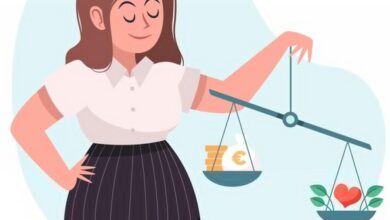Economic values definition commercial Market price consumer surplus
Economic values are economic concepts that relate to the price of goods and services in the market and to assessments that individuals make in relation to such products and services.
These concepts are useful for evaluating an individual’s economic choices. That is, measures of economic value are based on what people want, even if they are not very aware of what they really want.
Economic valuation theory is based on individual preferences and choices. People express their preferences through the choices they make according to their income or available time.
Josh Kaufman, author of the MBA Personal book, explains that this implies that marketers must discover what their potential customers value more than the purchasing power of the money they have. Identify nine common economic values that people typically consider when evaluating a potential purchase:
- Efficiency
- Speed
- reliability
- ease of use
- Flexibility
- state
- Aesthetic Appeal
- Emotion
- Cost
Kevin Mayne, however, points out that things that are fast, reliable, easy, and flexible are convenient, while things that offer quality, status, aesthetic appeal, or emotional impact are high fidelity. These two concepts, convenience and loyalty, determine the purchase decision.
In short, the way in which people choose to spend their income and time determines the economic value of a good or service.
commercial economic values
Economic value refers to the maximum amount of other things (money in a free economy and time in a socialist economy) that a person is willing to give for a good or service, compared to what he is willing to give for Another good or service.
Market price
This means that the market price of a product refers to the minimum amount that people are willing to pay for it, while the market value is the amount that a person would pay to obtain the tangible and intangible benefits of that product.
People only buy that good if their willingness to pay is equal to or greater than the market price. This also means that two products sold for the same price can have a different market value.
consumer surplus
Another economic value is consumer surplus which relates to the law of demand, according to which people demand less of something when it is more expensive.
This value changes if the price or quality of the good in question changes. That is, if the quality of a good increases but the price is maintained, people’s willingness to pay may increase and therefore profit or consumer surplus will also increase.
This variation also occurs if what changes is the price and/or the quality of a substitute or complementary good. Economic value is therefore a dynamic value, not a constant.
These changes may indicate changes in customer needs or changing conditions of competition.
producer surplus
On the other hand is producer surplus, or economic benefits to the producer of a good or service. It refers to the profits it represents for the producer, receiving a price higher than the price for which he would be willing to sell the good.
Economic value for the customer
The economic value for the customer (EVC) is used to define the prices of products or services, taking into account the tangible value (functionality) and intangible value (emotions) that people attribute to a product.
There are rational buyers who add up your product‘s expected benefits, compare them to costs, and buy if it offers enough benefits to justify its price (absolute EVC) or if it offers more value than what another vendor (relative EVC) offers.
This value is important because when it is higher than the price of your product, consumers have an incentive to buy it, but if the EVC is lower, the opposite can happen.
There are three keys to economic value for the customer:
- It must not be equal to the price of the good.
- It differs from the customer‘s willingness to pay
- It varies according to the type of customer (segmented according to the needs you want to meet).
In this sense, Jill Avery, professor at Harvard Business School, says that people, when buying a product, usually meet this type of need.
- Functional (or utilitarian)
- Social
- Expressive (or symbolic)
- recreational
Other economic values
Total value of a company’s physical assets when it goes out of business
Assets are property, roots, accessories, equipment, and inventory. This assessment is usually done at four levels: market value (perception), book value (that shown on the balance sheet), liquidation value (or expected asset value), and salvage value (or waste).
Economic Added Value (EVA)
It is a measure of internal management performance that compares net operating income to the total cost of capital. This value is used as an indicator of the profitability of the company’s projects.
The idea behind EVA is that a company’s profitability is measured by the level of wealth it generates for its shareholders. This measure is limited to a specific time period, so it is not possible to make predictions about the future performance of this organization.
Economic value of university degrees
It refers to the difference in economic evaluation that certain university degrees receive compared to others. For example, those who specialize in areas such as science, technology, engineering and mathematics may be economically valued better than those who study education.
Economic values determine the prices of goods and services consumed in the world and economists use them to measure the economic benefits of a policy or initiative.




